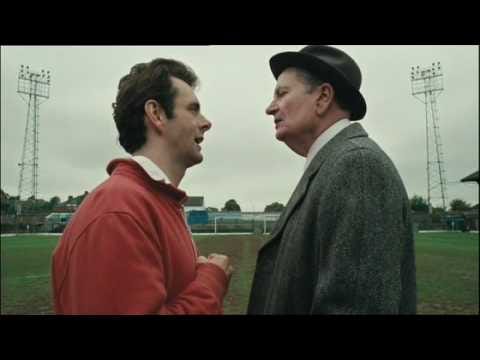This is a free post! If you don’t want to miss a newsletter, please:
A shifting tide?
When it comes to the public’s understanding of how best to run a football club, it seems we may have come full circle!
Over time, for example, the perceived wisdom has shifted from the idea that clubs need a strong, all-powerful man-manager (Clough), to clubs needing a manager with continental tactical acumen and some background in nutritional science (Wenger), to clubs needing to hire technical directors to take some of the pressure off the manager by focusing on recruitment and academy development and work with the chief execs (Soriano), and now to the idea that the technical director/DoF should be left to do their job unimpeded by meddling chief execs whose backgrounds are likely to be in banking or corporate finance or whatever.
In other words, we’re back to the strong football man calling the shots and the chairman begrudgingly signing the checks.
Before we get into why, some background. Many people, including myself, had their eyebrows raised after an Athletic profile on Manchester United’s controversial chief exec Ed Woodward revealed his vanity-driven interest in overseeing some of the club’s higher-profile signings. Here’s the (or a) relevant quote:
On this theme there is a suspicion among some agents that Woodward, for all his supposed intentions to appoint a “head of football”, enjoys the glamour of the game too much to ever truly relinquish involvement in transfers.
“When it comes to knowing football, knowing players and getting deals done, it isn’t his game,” says one respected intermediary. “It’s a power thing in my opinion. Woodward — or Judge (head of corporate finance Matt Judge, the club’s chief negotiator) — could do a deal with Chevrolet, for example, and it comes and goes without anybody really saying much about it. But when you land a big player you get the plaudits, that’s what they’re chasing. They’ve made mistakes and yet they’re still in charge.”
Interestingly enough, NYT’s Tariq Panja has today profiled Liverpool CEO Peter Moore, whose comments on the nature of his role could not possibly contain any more obvious juicy Woodward subtext!
In soccer, and especially in the Premier League, nothing generates interest quite like dealings in the transfer market, the $7 billion industry whose whispers and rumors routinely fill the gaps between every match and every season. The incessant focus on players has become such an important part of the soccer business, in fact, that at many top clubs — including Liverpool’s archrival, Manchester United, and Liverpool’s title rival, Manchester City — the chief executive, and not the manager, sometimes has the final say on the biggest player acquisitions.
Liverpool is set up differently, Moore said. And if that means he sometimes learns the specifics of a deal only minutes before an announcement of a major signing, he is fine with that.
“The modern game of football still has C.E.O.s running football clubs and also doing the transfer business and negotiating with agents,” Moore said. “That’s not how I believe a modern club should work.”
Moore believes that the role of the executives should be to assemble a cohesive team on the football side of the operations and leave it alone to do good work while focusing hard on things like commercial deals, PR, stadium financing, legal and political relationships, etc.
I think this business of moving the desks around, changing roles and set-ups, is interesting but alone is not why an explanation on its own for why a club is successful or not (itself a fraught term—one club’s success is another’s failure). I’ve written before, for example, that Arsenal has bought into the idea of keeping the footballing and commercial sides separate, but this strategy is clearly yet to bear fruit for a number of reasons, in part because head of football operations Sanllehi, a former sports marketing exec, may be less of a footballing man than his past with Barca might indicate.
What ultimately matters, in the end, is cohesion—is everyone working to see through a shared vision? Will the club front office be able to work together to make meaningful adjustments in the face of struggle, or will the owner cut key members loose without a plan to replace them a la Southampton?
Nevertheless, I have strongly advocated and strongly believe that clubs work best when the footballing people with the footballing pedigree can work together to build winning sides—not over a handful of seasons, but in the long run. They work best when the football operation is strongly backed and supported by a commercial operation that works diligently to support the club. They work best when overseen by owners with a clear mandate, but ones who don’t act shocked and upset when they realize football is a money-losing venture that derives a great deal of its revenue from on-pitch events that are largely subject to random variation.
With all that said, the time is not now for Liverpool supporters to pay homage to John Henry, Peter Moore and Michael Edwards. Their REAL work comes when Liverpool falters, some signings go awry, and the fans start itching for Klopp to leave. It’s navigating those uncertain waters that separates the perennial giants from the clubs that ride a lovely three-year crest only to collapse back to chasing Champions League places and getting hosed in the transfer market.


